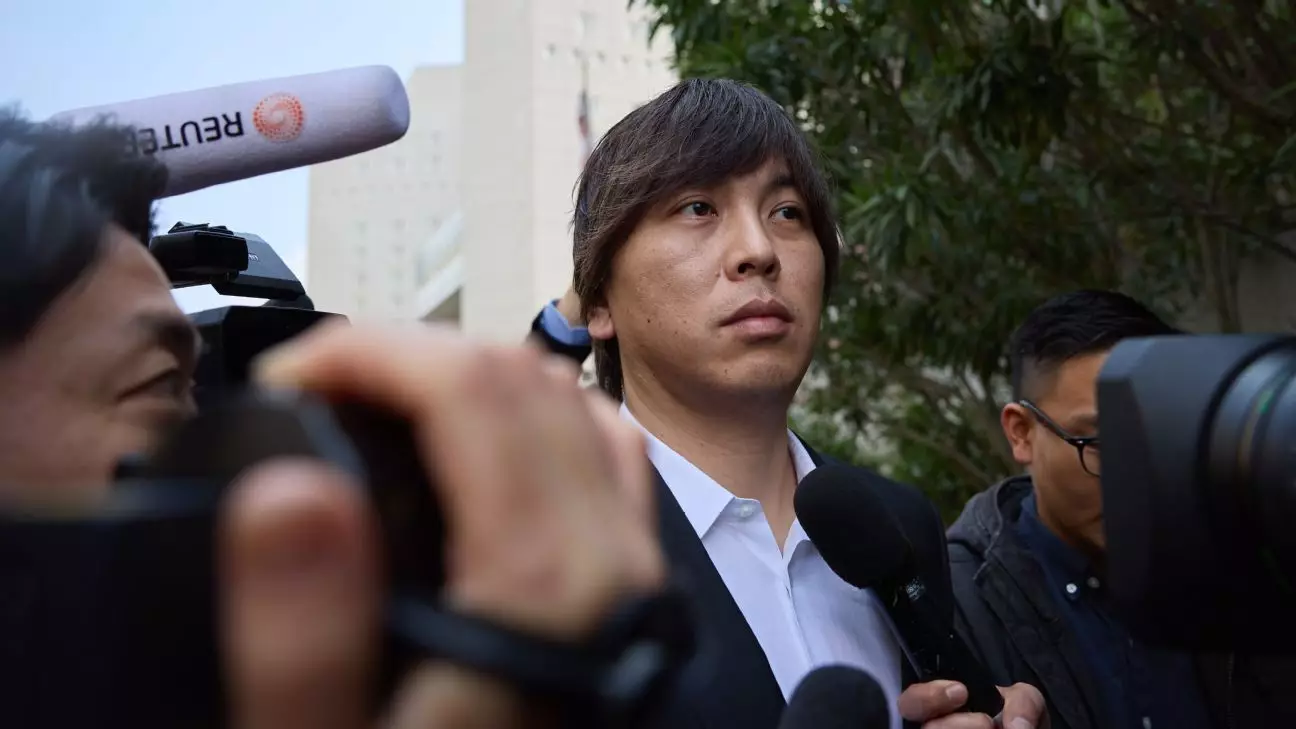The story of Ippei Mizuhara, former interpreter for baseball star Shohei Ohtani, has captured headlines, revealing a more intricate narrative beneath alleged fraud and gambling addiction claims. As Mizuhara faces federal charges for stealing an astounding amount from Ohtani, the court proceedings have quickly transformed into a battleground of interpretations surrounding his character, his claims of remorse, and the true nature of his financial dealings. Critical analysis of the ongoing situation reveals not only a tale of personal tribulation but a far-reaching investigation into the juxtaposition of truth, falsehood, and legal implications surrounding gambling and substance misuse narratives.
Central to the case is Mizuhara’s plea of guilt in June, following accusations of siphoning funds from Ohtani’s accounts. Was this driven by a genuine gambling addiction as he asserts? The prosecution firmly refutes these claims, suggesting that Mizuhara’s narrative is filled with self-serving justifications rather than substantiated evidence. Their investigation reportedly uncovered minimal traces of significant gambling activity prior to the theft, casting doubt on Mizuhara’s portrayal of a desperate man coerced into criminal acts due to financial ruin and an inescapable gambling addiction. This absence of evidence has significant implications, as it questions the veracity of Mizuhara’s claims and the sincerity of his remorse.
Prosecutors presented findings from an extensive investigation, exploring over 30 casinos and concluding that Mizuhara had only spent a negligible amount at the Mirage in 2008. Furthermore, while he registered with online betting platforms, reports indicate no bets were placed until well after he had already committed the alleged acts of theft. This incongruency raises significant questions: if Mizuhara did indeed face a gambling compulsion, why did it only manifest after allegedly stealing millions from Ohtani? The complexity of addiction and its relationship with compulsion cannot be understated, but the prosecution argues that the absence of prior gambling history undermines Mizuhara’s attempts to present himself as a victim rather than a perpetrator.
While Mizuhara requests a lenient sentence based on presumed financial duress and ongoing payments, prosecutors paint a different picture. They assert that he was not financially strained at the time of his initial theft, possessing over $34,000 in his bank account. His decision to commit fraud, they argue, was not borne out of desperation but calculated avarice. This assertion challenges the victim narrative that Mizuhara seeks to relay; instead of a man driven by crippling debt, the prosecution depicts him as someone choosing to appropriate Ohtani’s resources for personal gain.
The allegations extend to claims about Mizuhara’s financial lifestyle, including lavish living arrangements facilitated by Ohtani’s generosity. Rather than struggling with rent payments, the evidence purportedly indicates that Mizuhara utilized Ohtani’s debit card without authorization, all while portraying a façade of financial instability. Such a contradiction only complicates Mizuhara’s defense and calls into question his claims of remorse when his actions suggest a willingness to deceive even those closest to him.
The Justice System and the Nature of Remorse
Prosecutors stressed the importance of genuine remorse when assessing sentencing outcomes, insisting that many defendants feign regret only to evade full accountability for their actions. A pivotal moment highlighted in their filing concerns the qualitative nature of Mizuhara’s remorse: is it authentic, or does it stem from societal pressures and the attention he garnered from his fraudulent behavior? Their assertion that his claims to remorse may merely be an exercise in damage control introduces a fascinating exploration into how legal frameworks address the human condition within court settings.
The case may prompt broader discussions regarding the expectations surrounding accountability in the realm of financial crimes, particularly amid claims of addiction. The intricacies embedded within Mizuhara’s situation highlight the complications surrounding addiction narratives, which often serve to humanize individuals at the risk of diluting their accountability. As sentencing approaches, this case may set precedents for how remorse, addiction, and personal responsibility intersect within legal contexts.
The strife surrounding Ippei Mizuhara offers a compelling view into the complexities of crime, accountability, and mental health narratives. With federal prosecutors reiterating their stance on the need for a substantial prison sentence due to the calculated nature of Mizuhara’s deception, the court’s eventual ruling will have profound implications not only for Mizuhara himself but also for the broader tapestry of the justice system. As this case progresses, it serves as a stark reminder of the human propensity for both deceit and remorse, leaving observers with a tangible anticipation of the balance the court will strive to achieve—justice tempered with understanding.

